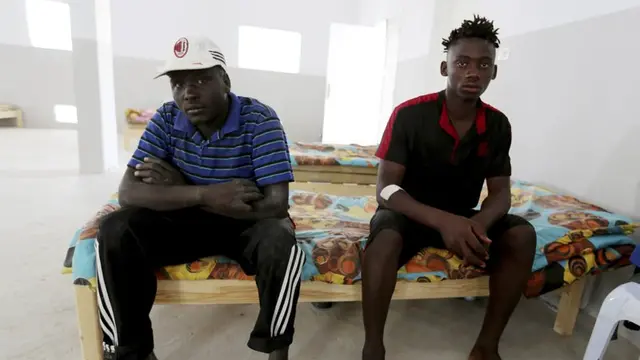Former Japanese prime minister Tomiichi Murayama, known for his apology for past wartime atrocities while in office, arrived here Tuesday for a three-day visit to South Korea amid frayed ties between the two countries.
Murayama, who came at the invitation of South Korea's minor opposition Justice Party, visited the parliamentary headquarters where an exhibition of artworks by former South Korean "comfort women" is being held.
At the exhibition, the former Japanese prime minister met three South Korean women who were coerced into sex slaves at the Japanese military brothel during World War II, when more than 200, 000 young women, many of them South Koreans, were forced into the sex slavery.
The 89-year-old told the women of old age, "You look younger than me. Please be healthy always." Among 237 South Korean women who identified themselves as former sex slaves, only 56 are alive.
One of the three victims said that Japan should apologize to and compensate for the victims, noting that Japan hauled them to the military brothel.
Murayama said in his 1995 speech that Japan "caused tremendous damage and suffering to the peoples of many countries, particularly to those of Asian nations" through its colonial rule and aggression after a mistaken national policy that led to war.
South Korean President Park Geun-hye said in mid-January that Japanese leaders should honor the past apologies made by Murayama and former Chief Cabinet Secretary Yohei Kono, who made an official apology in 1993 to the comfort women via the famous "Kono Statement."
Ties between South Korea and Japan have been strained since Japanese Prime Minister Shinzo Abe took office in late 2012. In December last year, Abe visited the controversial Yasukuni Shrine, a symbol of Japan's militaristic past as it enshrines 14 World War II class-A war criminals.
The ongoing historical and territorial disputes between the two countries stemmed from Japan's colonial rule of South Korea from 1910 to 1945. Those include the comfort women as well as the territorial dispute over the islets off South Korea's east coast known as Dokdo here and Takeshima in Japan.
Murayama told a press conference that he is not in a position responsible for the government policy at present, noting that he came here to exchange views freely over various issues, including the historical disputes and the frosty relations between Seoul and Tokyo.
The former Japanese prime minister is scheduled to give a lecture at the parliamentary headquarters Wednesday and meet Prime Minister Chung Hong-won Thursday before going back to Japan.
 简体中文
简体中文

